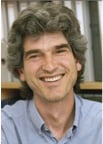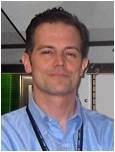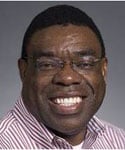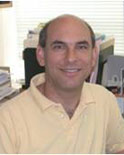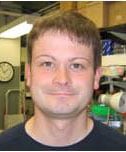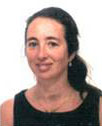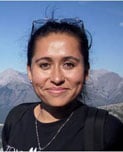New UMass CFAR Members 2012-2013
Distinguished physician–scientist Jeremy Luban, MD has been appointed professor of molecular medicine at UMass Chan Medical School and the David L. Freelander Memorial Professor in HIV/AIDS Research. Dr. Luban's research focuses on understanding host cell factors that contribute to HIV viral replication. The UMass CFAR takes this opportunity to introduce several newly-appointed UMass faculty who will enhance and deepen the HIV/AIDS research efforts.
Click on the picture to view of profile of each new UMass CFAR Member.
Distinguished physician–scientist Jeremy Luban, MD has been appointed professor of molecular medicine at UMass Chan Medical School and the David L. Freelander Memorial Professor in HIV/AIDS Research. Dr. Luban's research focuses on understanding host cell factors that contribute to HIV viral replication. He has identified Cyclophilin A and Trim 5 among more than thirty HIV-1 regulatory host factors. His work will contribute to the development of drugs and vaccines targeting HIV virus infections and other disease states. At UMass Chan Medical School, Dr. Luban will collaborate with Dale Greiner, PhD, Professor of Molecular Medicine, to develop a humanized mouse model for HIV research. He will co-lead the HIV Host Defense Scientific Working Group and will provide his expertise to CFAR investigators in designing and interpreting results obtained in humanized mice.
"Dr. Luban brings exciting new energy and direction to the scientific agenda of the UMass CFAR," --Celia Schiffer, Ph.D., UMass CFAR Director
Recently joining UMass as Assistant Professor of Microbiology and Physiologic Systems, Dr. Brass has extensive experience in molecular genetics, cell biology, virology and functional genomic screening in mammalian cells. He has successfully carried out RNA interference (RNAi) screens for host factors that modulate HIV-1, HCV and influenza A virus replication. His lab has also developed applications for carrying out whole genome short hairpin RNA screens in primary human immune cells including macrophages, dendritic cells, and T cells (CD4+ and CD8). He brings functional genomics, proteomics, molecular genetics and biochemical techniques to the understanding of HIV pathogenesis and to the overall UMass CFAR effort and to the HIV Host Defense Scientific Working Group.
Philimon Gona, MPH, MA, PhD, MSc
Dr. Gona is an Associate Professor of Quantitative Health Sciences at UMass and a member of the UMass CFAR HIV Clinical and Community Outreach Exploratory Working Group. Dr. Gona has extensive experience working in large data coordinating and analysis program centers. In his previous position as a Research Scientist at Harvard School of Public Health Center for Biostatistics in AIDS Research, he designed and analyzed studies for the AIDS Clinical Trials Group and chaired the ACTG's Surveillance Working Group on HIV-related opportunistic infections. He currently serves as the Data Safety Monitoring Board biostatistician for the NIH-funded Adolescent Medicine Trials Network for HIV/AIDS Interventions (ATN).
Samuel M. Behar, MD, PhD
Dr. Behar is joining UMass Chan Medical School as a Professor of Microbiology and Physiologic Systems from the Brigham and Women's Hospital Division of Rheumatology, Immunology and Allergy, where he studies immunity to Mycobacterium tuberculosis (Mtb). His long-term goal is to understand the immunological basis for host resistance to this disease, which has infected one-third of the world's population and is a significant cause of death in persons who are immuno-compromised by HIV infection. Current projects include identifying the mechanism(s) by which Mtb-specific CD8+ T cells restrict intracellular bacterial growth, determining how the death modality of infected macrophages affects immunity, and elucidating the contribution of CD1d-restricted NKT cells to microbial immunity. These investigations will provide insights into how these cells modulate immunity and strengthen the UMass CFAR's HIV Host Defense Scientific Working Group.
David Grunwald, PhD
Dr. Grunwald is joining UMass Chan Medical School as Assistant Professor, RNA Therapeutics Institute, in the Department of Biochemistry and Molecular Pharmacology. He trained with Rob Singer at A. Einstein College of Medicine and has developed techniques for visualizing single molecules deep within the cell. Among the topics of research in his lab is the visualization of HIV-1 RNA as it is transported out the nucleus in a Rev-dependent manner. His long term
research goal is to develop a high-resolution spatial map of dynamic interactions between nuclear pore components, mRNA, viral-RNA, and viral and endogenous cofactors. Towards this end he is developing a state-of-the-art, live cell, super-registration, three-color, high-speed imaging system to simultaneously visualize the transport of HIV-1 RNA using two different pathways.
Caterina Strambio de Castillia, PhD
Assistant Professor, UMass Program in Molecular Medicine in 2012, Dr. Strambio is an expert cell biologist who specializes in cell fraction, biochemistry and imaging. She trained with Nobel Laureate Günter Blobel and Mike Rout of Rockefeller University, as well as with retrovirologist Eric Hunter (Emory CFAR). Her current efforts are focused on the development of techniques for visualizing HIV-1 in live cells and development of software for coordinating meta-data, data storage, and algorithm interfaces for HIV-1 particle tracking within infected cells. A member of the CFAR HIV Viral Replication Scientific Working Group, Dr. Strambio De Castillia interfaces with HIV-1 molecular virologists (Drs. Heinrich Gottlinger and Jeremy Luban) and the three-dimensional Digital Imaging Microscope developers within Molecular Medicine, as well as with new UMass recruit Dr. David Grunwald.
Aviva Joseph, Ph.D.
Assistant Professor of Molecular Medicine, Dr. Joseph brings to the UMass CFAR expertise in modifying human HSC that are used to reconstitute humanized mice with functional human immune systems. This includes transduction with complex lentiviral vectors that express multi-component protein complexes such as recombinant antibodies and T cell receptors. She also has years of experience delivering viruses and immunogens to mice in various experimental systems, via multiple routes, including oral, rectal, and vaginal. Dr. Joseph will provide her expertise with lentiviral vector transduction of hematopoietic stem cells and other hematopoietic elements to various CFAR investigators who will need to express transgenes or shRNAs for gene knockdown. Her postdoctoral research training included stages at NCI, Technical University of Delft, Netherlands, and Albert Einstein College of Medicine under supervision of Harris Goldstein, MD.

